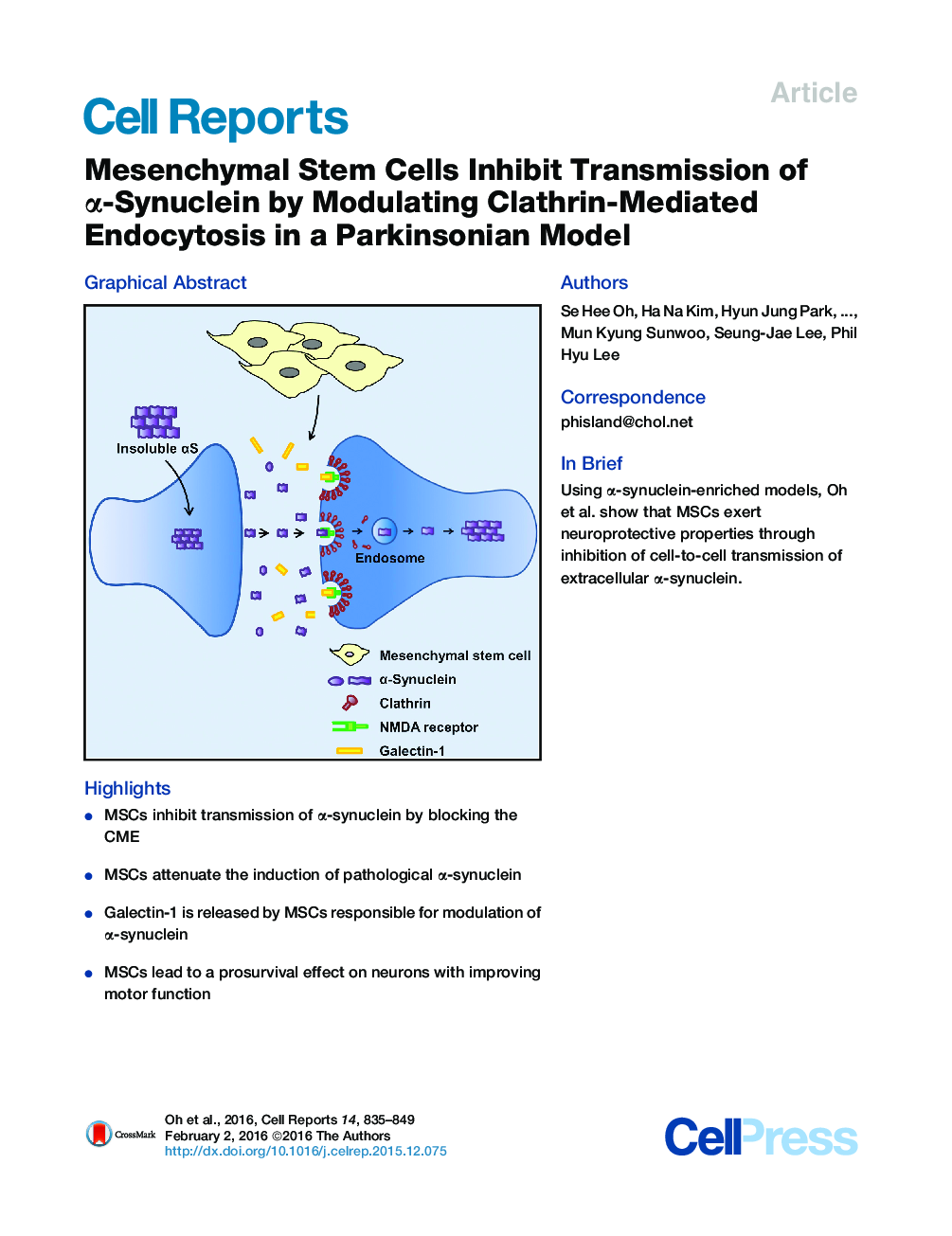| Article ID | Journal | Published Year | Pages | File Type |
|---|---|---|---|---|
| 2041728 | Cell Reports | 2016 | 15 Pages |
•MSCs inhibit transmission of α-synuclein by blocking the CME•MSCs attenuate the induction of pathological α-synuclein•Galectin-1 is released by MSCs responsible for modulation of α-synuclein•MSCs lead to a prosurvival effect on neurons with improving motor function
SummaryAmple evidence suggests that α-synuclein is released from cells and propagated from one area of the brain to others via cell-to-cell transmission. In terms of their prion-like behavior, α-synuclein propagation plays key roles in the pathogenesis and progression of α-synucleinopathies. Using α-synuclein-enriched models, we show that mesenchymal stem cells (MSCs) inhibited α-synuclein transmission by blocking the clathrin-mediated endocytosis of extracellular α-synuclein via modulation of the interaction with N-methyl-D-aspartate receptors, which led to a prosurvival effect on cortical and dopaminergic neurons with functional improvement of motor deficits in α-synuclein-enriched models. Furthermore, we identify that galectin-1, a soluble factor derived from MSCs, played an important role in the transmission control of aggregated α-synuclein in these models. The present data indicated that MSCs exert neuroprotective properties through inhibition of extracellular α-synuclein transmission, suggesting that the property of MSCs may act as a disease-modifying therapy in subjects with α-synucleinopathies.
Graphical AbstractFigure optionsDownload full-size imageDownload as PowerPoint slide
